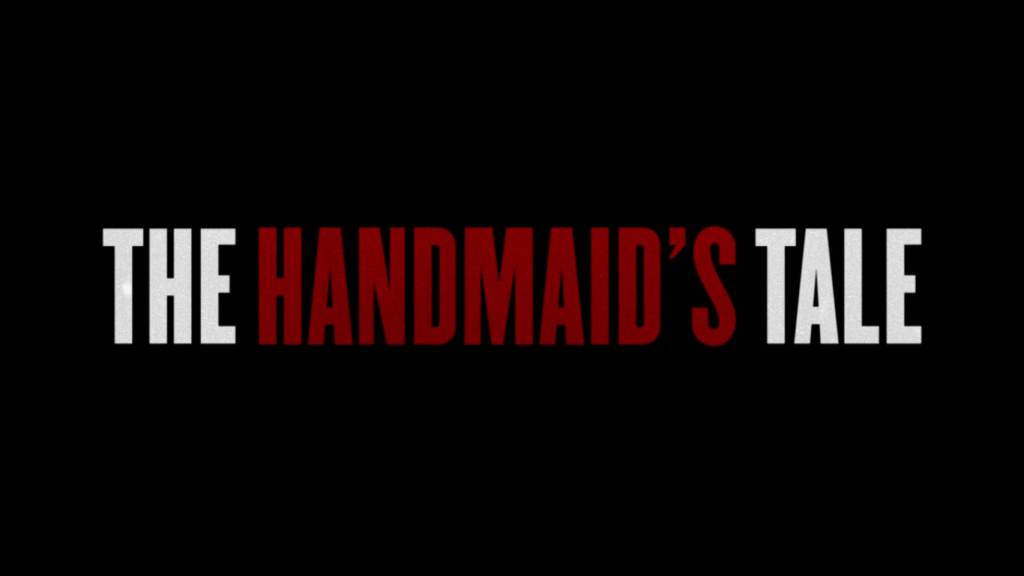written by David Steffen

The Handmaid’s Tale is a TV show presented on the Hulu streaming service, based on the 1984 Margaret Atwood novel of the same name, which was previously reviewed here, about a near-future dystopia in which the USA has become an extremely oppressive theocracy in which women are second-class citizens, especially the handmaids who are little more than breeding stock. Season one aired on Netflix in 2017.
In the near-future world of the story, a worldwide infertility epidemic is affecting the whole world, and the United States has been overthrown by a violent fundamentalist Christian regime and renamed Gilead. The leaders of Gilead think that the world’s problems are a punishment from God for their wickedness, and have taken over to enforce their own view of morality on their citizens.
One of the largest of these changes is the introduction of handmaids, fertile women who are assigned to commanders whose wives have not borne children, to be raped every month when they are ovulating with the intent of bearing a child that will then be taken by the commander as his own child.
The protagonist of the book is June (Elisabeth Moss), who is a handmaid officially known as “Offred” (as in “of Fred” because Fred is the first name of the commander she is assigned to(Joseph Fiennes)), who had a husband and a young child before the rise of Gilead and she was made a handmaid because of past infidelity. She is trying to survive despite the extreme circumstances, and she is trying to make her place in this new world with potential friends like the commander’s driver Nick (Max Minghella) and maybe make a difference to someone and if she is very very lucky, make a mistake.
Besides the monthly “ceremony” when she is ovulating, she also has to deal with the passive-aggressive tendencies of the commander’s wife Serena (Yvonne Strahovski), and the overbearing leadership of Aunt Lydia who oversees all of the local handmaids.
For those who have read the book, the first season pretty much matches the timeline and major events as the book, also ending in pretty much the same place. It has been a couple years since I’ve read the book but the parts that I remembered matched the book quite closely.
The writing, the casting, the music, the production, everything about this show is done very well. It is not a show for the lighthearted, and is as relevant (or more relevant) than the story was when the book was originally published in the mid-80s–it is all too easy to believe some of the dystopic religio-political beliefs in Gilead taking root in some current trends. The Handmaid’s Tale is a good story, but even more so than other dystopias it is a warning about where we might end up if we don’t resist changes that would take us to that dystopia.
Highly recommended, if you feel you can handle something so dark.
